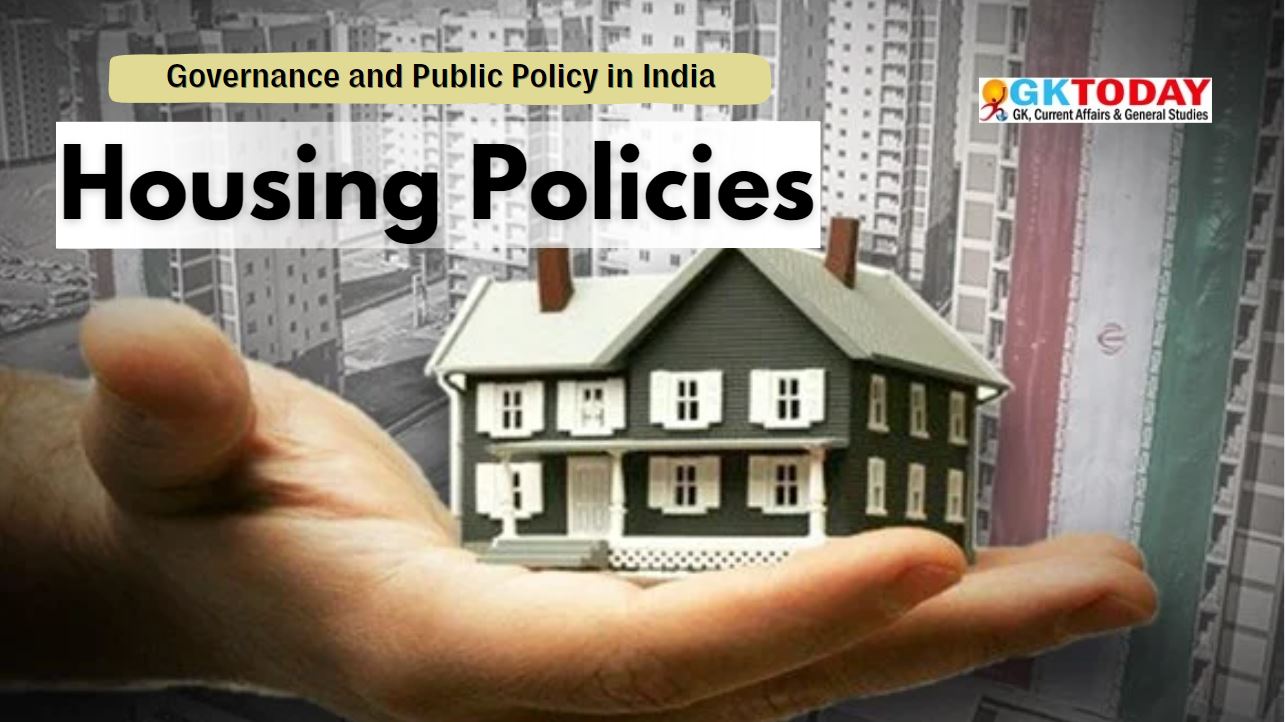Housing Policies in India – UGC-NTA NET Political Science
Housing policies in India play important role in socio-economic development. They aim to provide adequate housing for all citizens, recognising housing as a fundamental human right. The evolution of these policies reflects India’s changing socio-economic landscape.
Introduction to Housing Policies
Housing policies are government strategies designed to ensure that all citizens have access to adequate housing. They are essential for promoting social equity and economic stability. Housing is not only a basic need but also a contributor to overall well-being.
Historical Context
Pre-Independence
Before independence in 1947, housing policies were limited. They primarily focused on urban elites. The colonial government did little to address the needs of the poor.
Post-Independence
After independence, the Government of India adopted a welfare state approach. Housing became a priority for socio-economic development. The focus shifted to providing housing for all, particularly for the poor and marginalized.
Key Housing Policies and Schemes
Jawaharlal Nehru National Urban Renewal Mission (JNNURM) (2005)
- Objective: Improve urban infrastructure and housing.
- Focus: Slum rehabilitation and affordable housing initiatives.
Pradhan Mantri Awas Yojana (PMAY) (2015)
- Objective: Housing for All by 2022.
- Components: PMAY (Urban) and PMAY (Gramin).
- Subsidies: Interest subsidies on housing loans for economically weaker sections (EWS).
Rajiv Awas Yojana (RAY) (2009)
- Objective: Achieve a slum-free India.
- Focus: Providing housing to the urban poor.
National Urban Housing and Habitat Policy (2007)
- Objective: Promote sustainable urban housing.
- Emphasis: Public-private partnerships for housing development.
Legislative Framework
The Real Estate (Regulation and Development) Act, 2016
- Objective: Protect home buyers and enhance transparency in the real estate sector.
The Affordable Housing in Partnership (AHP) Scheme
- Focus: Collaboration between government and private sector to provide affordable housing.
Challenges in Housing Policies
Urbanization
Rapid urban growth has led to increased demand for housing. Cities are expanding, but housing supply often lags behind.
Affordability
High housing costs in urban areas make it difficult for many to secure adequate accommodation. This issue is particularly severe for low-income groups.
Slum Development
Effective rehabilitation of slums is essential. Many policies struggle to integrate slum dwellers into urban planning.
Land Acquisition
Land acquisition often leads to displacement. Conflicts arise between development needs and the rights of existing landowners.
Impact of Housing Policies
Economic Growth
The housing sector contributes to India’s GDP. It drives related industries, boosting economic activity.
Employment Generation
The construction sector creates numerous jobs. It employs millions, from skilled labour to unskilled workers.
Social Inclusion
Improved housing conditions enhance the quality of life for marginalized communities. Better housing contributes to social equity and stability.
Recent Developments
Green Housing
There is a growing focus on sustainable housing. Green building practices are being promoted to reduce environmental impact.
Use of Technology
Technological advancements are transforming housing construction. Prefabricated housing is gaining popularity for its efficiency.
Smart Cities Initiatives
The government is investing in smart cities. Integrated housing solutions are part of this vision, aiming to improve urban living standards.
Role of Government and Stakeholders
Central and State Governments
These bodies are responsible for policy formulation and implementation. They ensure that housing policies meet local needs.
Local Bodies
Urban local bodies play important role in implementing housing policies. They manage local housing projects and ensure compliance with regulations.
Private Sector
The private sector is vital for financing and constructing housing projects. Collaborations with the government enhance housing availability.
International Comparisons
Developed Countries
Housing policies in countries like the USA and UK differ . They often involve more comprehensive support systems for low-income families.
Lessons from Global Best Practices
India can learn from successful international models. Effective affordable housing strategies can be adapted to local contexts.
Future Directions
Comprehensive Housing Policies
There is a need for policies that address both urban and rural housing needs. A holistic approach can enhance overall effectiveness.
Sustainable Solutions
Future policies must emphasise sustainability. Solutions should consider environmental impacts and promote green technologies.
Integration with Socio-Economic Strategies
Housing policies should be linked with broader socio-economic development plans. This integration can enhance the overall impact on society. Thus, housing policies in India are vital for socio-economic development. They have evolved , addressing the needs of diverse populations. However, challenges remain. Future strategies must focus on sustainability, inclusivity, and effective implementation to ensure that every citizen has access to adequate housing.


